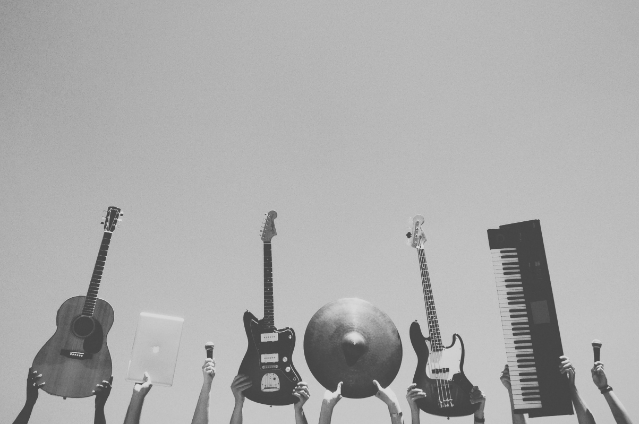
Photo by Caleb George on Unsplash
Introduction
Amid bustling lives and increasing digital interactions, the pangs
of loneliness have become all too common. As humans seek meaningful connections in an interconnected world, the therapeutic role of music in combating loneliness has gained significant attention. Music, with its universal language, has the remarkable ability to touch our souls, alleviate feelings of isolation, and provide solace during times of solitude.
According to Andre Feriante, "Music has the power to heal, transform, and inspire and we have the power through deep listening to increase our intuition and self-awareness."
The Loneliness Epidemic
Loneliness is no longer just a passing emotion; it has evolved into a modern epidemic that affects people of all ages.
From young adults in the prime of their social lives to the elderly grappling with isolation, loneliness takes a toll on mental and physical well-being. The rise of social media, while ostensibly connecting people, has paradoxically exacerbated feelings of loneliness as genuine face-to-face interactions often take a back seat.
The Melodic Antidote
In this digital age, music serves as a soothing balm for the lonely heart. Music's ability to resonate with our emotions and experiences provides a sense of companionship that transcends physical presence. Listening to a favorite song or genre can evoke nostalgia spark creativity, and bring about a sense of comfort, reminding us that we are not truly alone.
Emotional Resonance: Music has an uncanny ability to mirror our feelings, offering a safe outlet for our emotions. It can validate our experiences and offer a kind of understanding that can be hard to find elsewhere. When someone listens to lyrics that mirror their thoughts or emotions, a profound sense of connection is established.
Expressing the Inexpressible: Loneliness often stems from an inability to articulate our thoughts and emotions. Music provides an alternative channel for self-expression, allowing individuals to communicate their innermost feelings without having to find the right words.
Creating Shared Experiences: Attending concerts, music festivals, or even singing in a choir fosters a sense of community and shared experience. These events bring people together over a shared passion, diminishing the feelings of isolation that loneliness can cultivate.
The Neuroscience of Music: Neuroscientific research has shown that listening to music triggers the release of dopamine, a neurotransmitter associated with pleasure and reward. This chemical reaction in the brain not only enhances mood but also reinforces positive emotions, countering the negativity that often accompanies loneliness.
Empowerment and Empathy: Through music, artists often share their own stories of struggle and triumph. These narratives of resilience and vulnerability inspire listeners to find their own strength. This process of identification promotes empathy and reminds us that we are not alone in our struggles.
Mental Well-being:
Emotional well-being is intrinsically tied to physical healing. Music provides an avenue for patients to express and process their emotions, fostering emotional release and reducing feelings of isolation. For patients dealing with chronic illnesses or long hospital stays, music can serve as a source of solace and connection to the outside world.
Robert Browning has also said, "Who hears music, feels his solitude peopled at once."
Conclusion
In a world where loneliness can creep into even the most socially active lives, music stands as a steadfast companion. Its ability to soothe, uplift, and resonate with our emotions plays a pivotal role in combatting the isolation that plagues so many. Whether through shared experiences at concerts, personal connections with lyrics, or the simple act of playing an instrument, music's healing power brings solace and unity to those
who seek it. As we continue to navigate the complexities of modern life, let us remember the transformative role of music in connecting hearts, minds, and souls in harmony.
